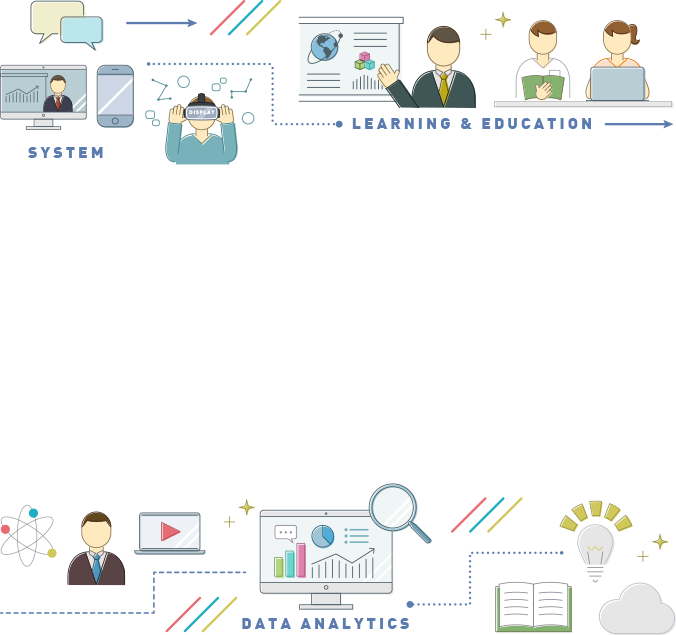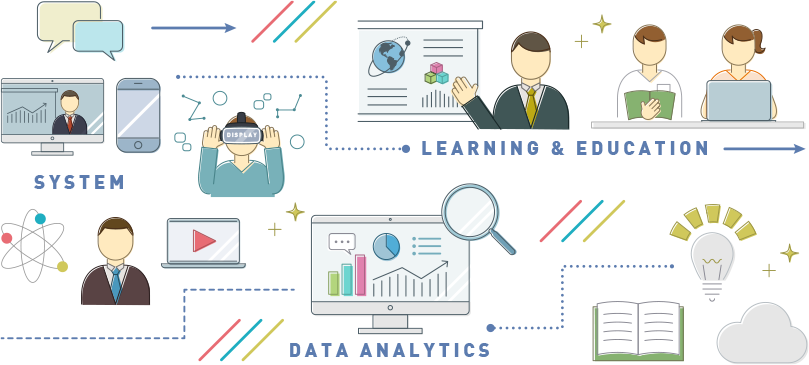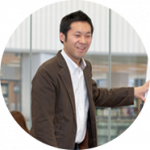We are very excited to announce that we have our first PhD on December 31, last year. It has been about 13 years since I started this career. I was not able to join the graduate school at my previous position, and it has been about 8 years since I came to Kyushu University. I have been working hard to create a laboratory like Dr. Akahori’s and to contribute to the development of educational technology research. Finally, I was able to reach this day.
Of course, I could not have done anything by myself. In a graduate school where educational technology research is not familiar, and in a major that is classified as the field of social science, it was a major challenge to have people understand a research field with a science flavor, such as educational technology, and I believe that this is still a challenge today. I am sure that each faculty member and student has something to think about, but I believe that pedagogy is a research field that has the capacity to accept such diversity, partly because it is diverse field itself and has an interdisciplinary character that accepts linkages with various fields.
I would like to thank Dr. Hiroshi Kume and Dr. Satoshi Tagami of the Graduate School of Human and Environmental Studies, as well as Dr. Takuya Kimura, Director of the Department, Dr. Yukie Oka, former Director of the Department, the faculty members of the Department, and Dr. Hiroaki Ogata of Kyoto University, who served as reviewers, for their invaluable assistance. I am very grateful to all of them. Especially, Prof. Kume, whose regular seminar my students participate in, gave us various feedbacks on the spot, which I believe made my student’s doctoral dissertation even better. Dr. Kimura and Dr. Oka, former deans of the department, did a great job of steering us through the formulation and discussion of the performance evaluation rules for educational technology research in our department. It was the first time for our department to offer a degree in educational technology research, and since it is a science-oriented field, there were challenges in how to reconcile it with the current evaluation criteria, but we could proceed by the cooperation of both Drs. I am also very grateful to Dr. Keishi Shimada, Dr. Yuta Taniguchi, and Dr. Lu Min for their cooperation in providing and preparing the Learning Analytics infrastructure.
Now, the PhD student, or maybe she is not student anymore…the PhD recipient is as follows
Ms. Chen Li
- dissertation entitled “Collaborative Problem Solving-based STEM Instructional Design based on Learning Analytics. Instructional Design Based on Learning Analytics.”
Ms. Chen is currently an Academic Research Fellow for AIP Accelerated Research. She was awarded the Best paper award at the 2020 CELDA international conference. She was originally a middle school chemistry teacher, and with her background in the field, she took on the big theme of using new technologies, especially learning analytics, to explore the design of STEM education that incorporates collaborative problem-solving learning. Nowadays, with the GIGA school concept, ICT is being actively introduced into schools, but when she started this research, it was still in the vanguard of this trend, and it was quite difficult to obtain cooperation. I believe that her hard work has paid off. This is very significant educational technology research with a high return to the field, and I think it is useful knowledge in the coming era of one terminal per student and the spread of STEM/STEAM in subject education as well. Classroom design is a field that depends on the amount of experience, but educational technology is a research field that seeks ways to guarantee the quality of education that do not rely solely on experience, based on various learning-related theories. By utilizing ICT in this way, we can collect actual learning behavior data and objectively look at the effectiveness of the class design without relying solely on mental data, and we can also look at the key points of the class design. This is especially difficult in the case of cross-curricular STEM, which incorporates cooperative learning. This is a significant study that has created a breakthrough in this area.
I look forward to seeing how Mr. Chen’s career will develop in the future. As I explained at the beginning, my laboratory aims to emulate the laboratory of my advisor, Dr. Kanji Akahori. I would like to create a laboratory where we can devote ourselves strictly to research and feel a sense of growth as researchers and members of society. Although we are still halfway there, I hope to advance educational engineering research that can contribute to improving the quality of teaching and learning, and to disseminate this research both domestically and internationally. I would like to foster human resources who can play the role.
Following in Mr. Chen’s footsteps, I would like to continue to do my best to cultivate researchers who can play a leading role in educational technology research worldwide.
Thank you always for your continuous support.







